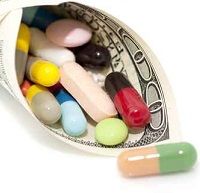Article
AMA Targets Generic Drugs' Skyrocketing Costs
Author(s):
Generic drugs used to be the cheaper alternative to name brand drugs. Now they are sometimes more expensive. The blame could go to Wall Street, the Obama administration, or even pharma collusion, but someone better put a stop to the increases, AMA delegates agreed today.

Recent dramatic spikes in the costs of many generic drugs in the US have alarmed physicians, delegates at the American Medical Association’s annual House of Delegate (HOD) meeting in Chicago said today.
Delegates debated whether they should ask the AMA to undertake a study individual generic drug price escalations, or whether it is time to call for immediate action from Washington.
“We all know the problem,” said Tom Weida, MD, of the Pennsylvania delegation, “We need to decrease the costs and increase access.”
Vermont’s U.S. Sen. Bernie Sanders has already called for a federal probe of the impact of the new prices on Medicare and Medicaid, in the form of a letter sent earlier this year to the U.S. Inspector General for Health and Human Services. Congress is also investigating.
The AMA wants to make its voice heard on the issue as well.
The delegates will vote June 8 and 9 on several resolutions related to efforts to stop the generic drug price hikes.
Meanwhile, at today’s HOD committee hearing, many physicians took the meeting microphone to express their concerns.
Those ranged from disbelief that the cost of a prescription for generic digoxin, the heart drug derived from digitalis, now costs $180 in the US, vs. $23 in Canada—a price tag that’s particularly galling since the drug has been around for hundreds of years and used to be offered in a tea brewed from the leaves of the foxglove plant, a common garden flower.
“I’ve seen blood pressure medication cost rise 370% in one year, said John Antalis, MD, of the Georgia delegation, “Some patients are getting 10 to 15 different medications,” so the cost to them could be devastating, he and others said.
Theories on what has led to the rapid price escalation varied.
One Montana delegate blamed the Affordable Care Act for extending Medicare’s prohibition on having the government negotiate with drug-makers on price. That eliminated much competition, he said.
Others blamed greed and cronyism among pharma companies, charging that generic drug makers are colluding to buy each other out so to thwart any restrain-of-trade inquiries. If only one generic manufacturer sells a drug, there is nothing to legally stop that company from charging whatever it wants, these doctors said.
Kansas delegate Dick Warren, MD, suggested that health insurance plans should refuse to put generic drugs in their formularies when their prices have skyrocketed. Otherwise they will likely pass the increases along to consumers in the form of higher premiums, Warren said.
In fact, other physicians said, some companies have been forced to put generics in their high-tier drug lists, forcing patients to pay more out of pocket.
Still others sympathized with some of the pharma companies, saying that price hikes can be due to sudden scarcities of key ingredients.
But Tatiana Spirtos, MD, of the California delegation urged her peers not to delay taking action. She urged the committee to take the various proposed resolutions and craft them into a single policy recommendation. “We don’t need another study,” she said.





